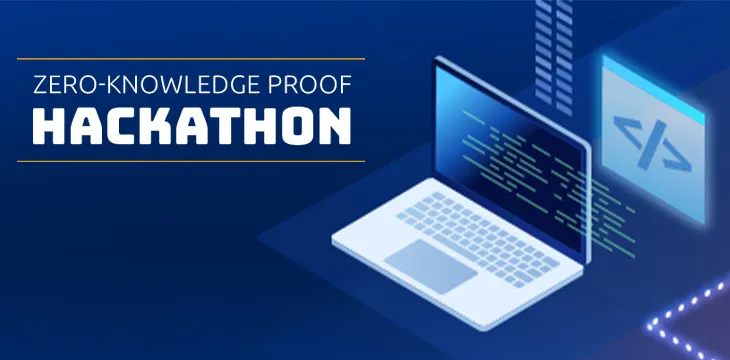|
Getting your Trinity Audio player ready...
|
New games, private identity verification, and proof-of-reserves for exchanges are among the 10 finalists selected in the 2022 Zero-Knowledge Proof Hackathon. The online event began in early November, with developers working to develop concept prototypes of applications that could radically expand Bitcoin and blockchain’s potential.
Bitcoin + ZKP is a win: the 1st-ever Bitcoin Zero-Knowledge Proof hackathon finalists are here https://t.co/MosTqScUr6 #BSV pic.twitter.com/UlnSgMVhaI
— sCrypt Official | OP_CAT 🐱 (@scryptplatform) December 9, 2022
Zero-Knowledge Proofs (usually called ZKPs) are an advanced type of smart contract that maintains data privacy while ensuring it can still be verified. They rely on a cryptographic protocol developed in 2012 known as zkSNARK, or “zero-knowledge succinct non-interactive argument of knowledge.” Running zkSNARK contracts on a blockchain network greatly expands the potential for application development, and developers can create and deploy new kinds of applications thought impossible just a decade ago. The ZKP Hackathon gives them a chance to explore this potential.
It’s possible to run zkSNARK on Bitcoin natively by implementing the verifier in the sCrypt contract language. sCrypt, with similar syntax to JavaScript, compiles to Bitcoin Script, allowing developers to create applications that couldn’t exist on other blockchains or at a fraction of the cost of other blockchains. Implementing zkSNARK contracts involves computationally intensive calculations. It requires a blockchain that can process data at a large scale at an affordable price per transaction. Only the Bitcoin SV (BSV) blockchain (which follows Satoshi Nakamoto’s original Bitcoin protocol rules) can do this.
The Zero-Knowledge Proof Hackathon is the first of its kind and is organized by sCrypt, Timechain Labs, and Nu10. Its website shows 929 participants, coding as individuals or teams. The requirements were for projects to be able to run on the BSV blockchain, with a submitted code repository on GitHub with documentation and a short video introducing the team and vision for each project.
The coding segment of the Hackathon is now finished, and now it’s up to judges Dr. Craig S. Wright, Dr. Jack Rogers, Jens Groth, Jad Wahab, Enrique Larraia, and Xiaohui Liu to assess the entries. There’s US$45,000 in prize money up for grabs.
Fairer games on the blockchain are one often-stated use case for ZKP contracts on BSV, and four of the finalists are recognizable games: including Gypsy Poker; ZK Minesweeper; Niu Niu Poker; and ZkSnake.
Other developers explored the areas of identity, proof-of-reserves, and backend tools to make building more sophisticated apps easier. There’s Credz, a comprehensive proof of ID and reputation verification platform for use in negotiation and trade, developed by Dave Foderick and Tomás Diaz. Jasmine Brunson’s zkReserve Lite uses AI technology to track proven reserves at major exchanges, a self-regulatory solution that removes the need for regular third-party audits.
Tim Middleton’s “zdna” is an inventive idea that compares an individual’s DNA to crime scene samples in a very demonstrative use of ZKP usefulness—people could eliminate themselves as crime suspects in specific cases without revealing any of their own DNA data. Joonyeong Park’s Svscribe can prove possession of a private key that keeps the key itself private and is designed for subscription authentication.
Backend-oriented entries are the BLS12-381 Library and ZkBaguette. Both are designed to reduce file sizes and memory usage when running ZKP contracts on Bitcoin, which would also result in lower costs.
There are many reasons why you’d need to verify certain data exists, without actually revealing what that data is. Several examples can be seen in the finalists mentioned above.
Businesses and individuals may need to prove they have sufficient funds or income to complete a deal without giving away the exact amounts they hold. People need to prove their identity or credentials are valid without revealing all the details they contain. Think of all the times you’ve had to upload a scan of a passport or driver’s license and worried about your identity being stolen—with ZKPs, you could verify that you have that valid ID without providing a full copy of the document itself.
Limited-knowledge games are a good demonstration of this system. The most familiar ones would be Battleship and poker, and in the latter, there can be a lot of money at stake. While centralized systems can create games where users can’t see each other’s cards, there’s no guarantee the game operator can’t. This has been the source of scandals in the past.
For developers, the Zero-Knowledge Proof Hackathon is the beginning of a long exploration—both of ZKPs’ and Bitcoin’s potential. There’s still plenty of undiscovered territory in each of those and unbounded potential in combining them. Even those new to Bitcoin development can jump in at this early stage and become future leaders in the field.
Watch: The BSV Global Blockchain Convention presentation, Virtual Events & Blockchain

 07-18-2025
07-18-2025 





